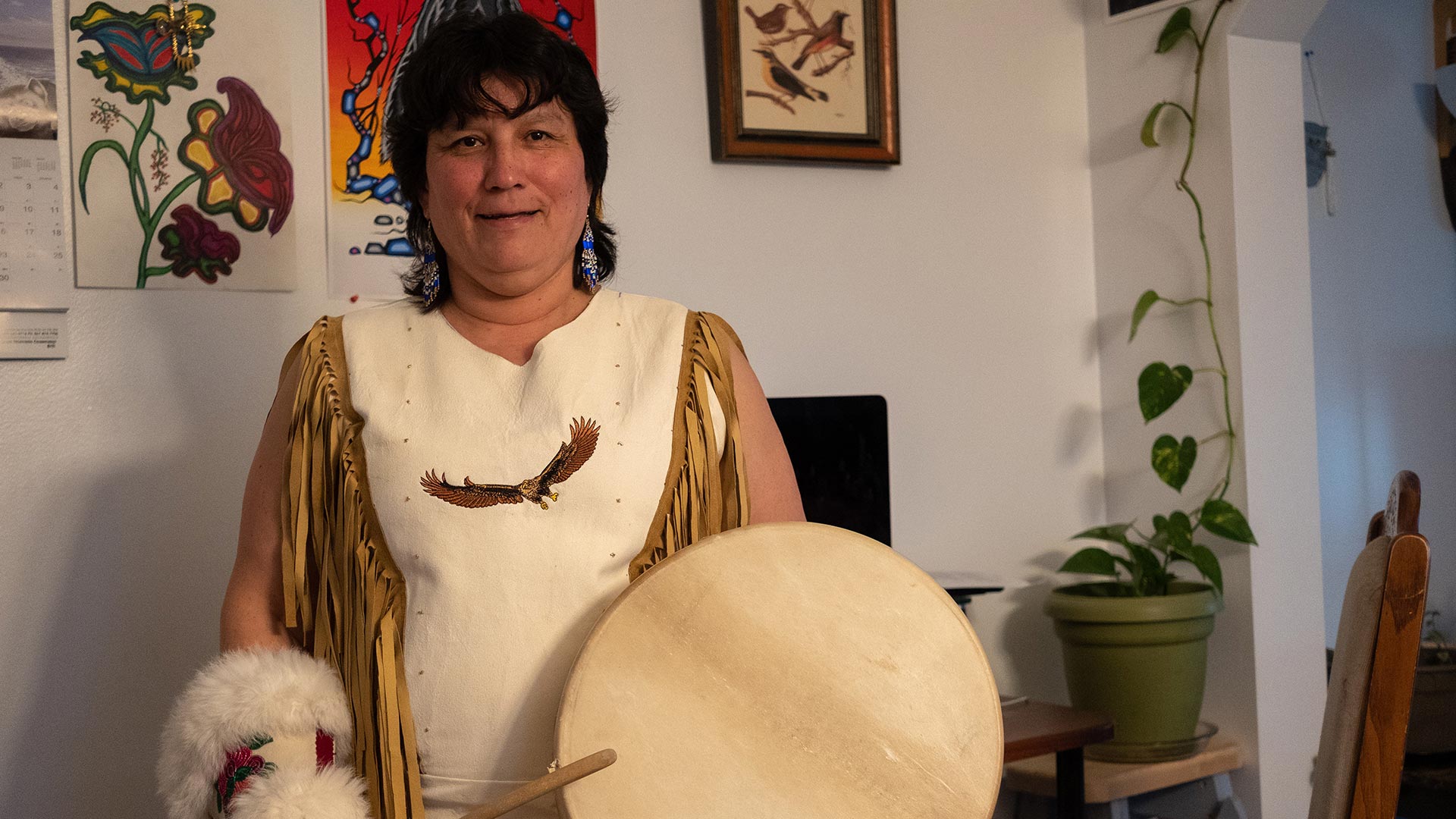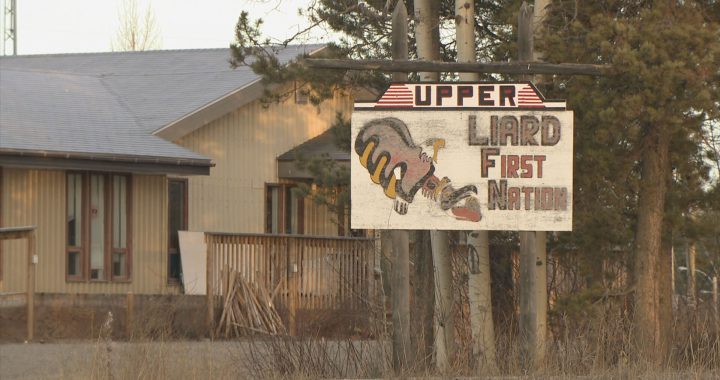Lindsey Bodnar-McLeod proudly retrieves a club size Pampers box overflowing with spiral ringed notebooks from a small hallway cubby.
In her second year of post-secondary she became a mother and has spent countless nights reading, writing, studying and preparing to follow her dream of becoming a teacher.
“My third year was probably the hardest, having eight courses all at once. I was typically up to four a.m. to get things done, when my son was sleeping,” she said.
This hard work paid off as the 24-year-old Gwich’in Dene graduated in April with honours with a Bachelor of Education, a milestone that would sadly go mostly unmarked by a physical graduate ceremony.
“It’s super sad, as a graduate at Aurora College who worked tremendously hard these last four years to get my degree, it feels like the day was robbed from us,” Bodnar-McLeod said.
> Lindsey Bodnar-McLeod spent many long nights maintaining her honour role status as a student while caring for her infant son in Fort Smith, N.W.T. Photo Courtesy of Lindsey Bodnar-McLeod.[/caption]
It wasn’t easy leaving her familial support system behind in Inuvik, Northwest Territories to live in student residents at Aurora College’s Fort Smith campus. But after cementing honour role all four-years of school, closing the chapter to her educational career is bittersweet.
Bodnar-McLeod is a part of history, graduating in the final year of the only program that produced locally educated teachers.
The Bachelor of Education program was delivered in partnership with the University of Saskatchewan, but was axed in 2017 as a part of government cuts.
Elizabeth Beaulieu, graduated from the program in 2019.
She knew serving Indigenous children from the north was something she was destined to do, and recognizes the high turn over rate of southern educators in the NWT.
“It takes a community to raise a child, but if you come to a community and know nothing about this child or their ancestors, the framework of that child, how are you supposed to help build that framework,” Beaulieu said.
She’s also sad to see the teaching program close their doors. Like Bodnar-McLeod, the focus on Indigenous studies not only prepared her for working in the north, but also shed some light on her own identity.
“Through this program it helped us to understand why our people are where they are today. The residential stuff, as I tackled it I cried. The kids that come from trauma really thrive in my program, they see where they fit,” she said.

The program paid off and she was hired immediately teaching Dene language and culture to roughly 60 students at Joseph Burr Tyrrell Elementary School.
She’s fought for the inclusion and protection of Indigenous languages, in spaces once overlooked. She worked hard to ensure her students were included in special events such as Christmas concerts.
Beaulieu leads by example, applying her knowledge of the land, respect for the animals, and appreciation for traditional practices learned in from her upbringing in Denı́nu Kų́ę́ – Fort Resolution.
During the pandemic she’s posted daily videos on social media to connect with her students.
She keeps the messages short and simple, sharing her dëne sųłıné yatıé – Chipewyan language online requires routine, building on words and phrases and then constantly reviewing material taught.
“I don’t believe in teaching inside, what we are teaching is language and what we are teaching is oral. You need to see it and hear it. Sit in a circle and we need to share,” Beaulieu said.
As territorial schools triage supplies with priority going to students bridging elementary and secondary, many in remote communities have not received learning materials such as iPads, making it difficult to continue learning.
Beaulieu said classroom management skills are crucial in times where you have some students branching off to learn independently, and noted that emphasizing a good parent-teacher relationship will help fill in the gaps.
“The hardest part of this (COVID-10), is teachers demanding from parents. We don’t want to push so the only thing we can do is suggest,” she said.
Student in the territory will receive final marks in June and even in uncertain times, local teachers rooted in their communities helps them to remain hopeful for their future.
“COVID-19 may have taken my grad but it didn’t take the degree. My graduation isn’t just for me, it’s for my son now,” Bodnar McLeod said.










